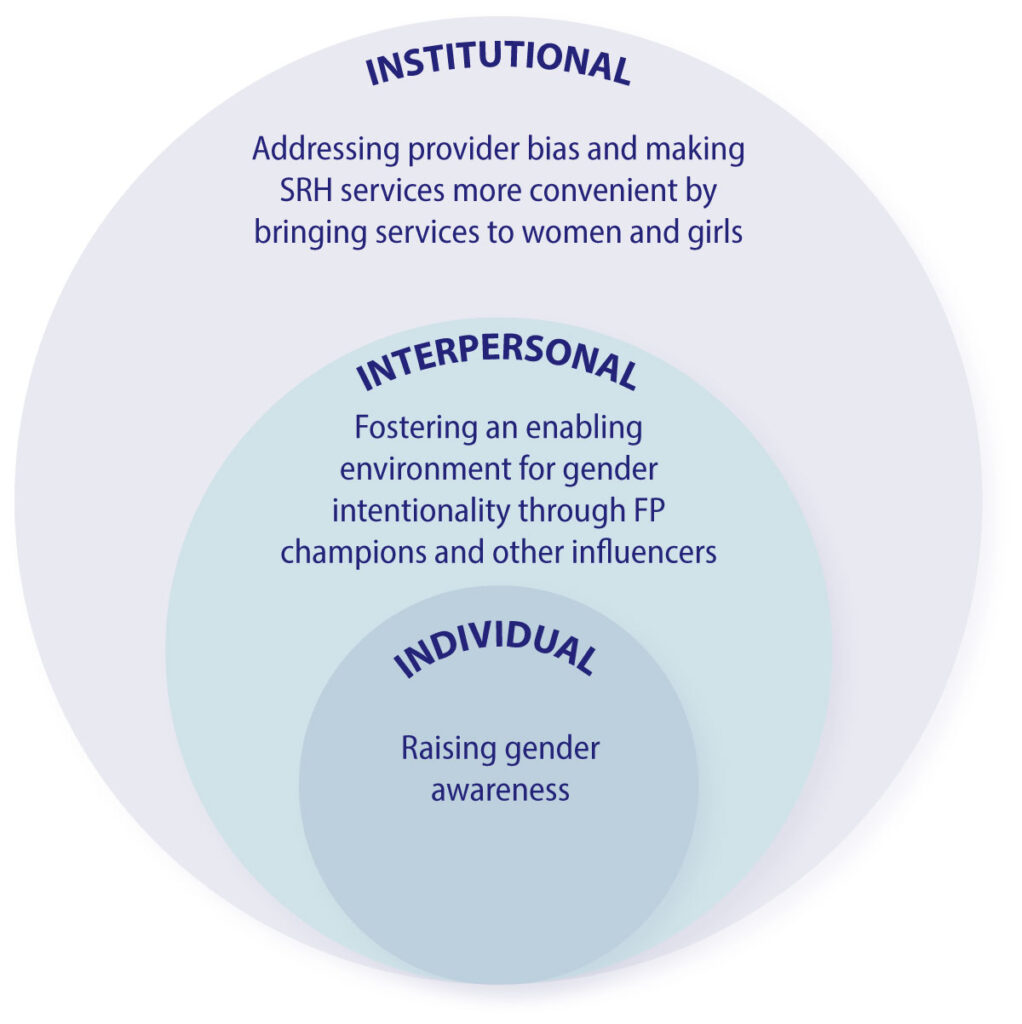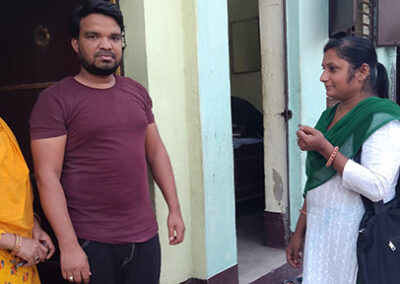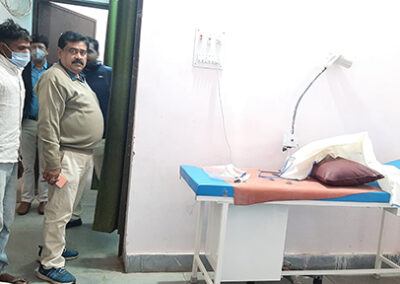Applying a Gender Lens for Success
Gender inequities can limit the reach, scale and uptake of health interventions. More effective, more successful family planning and adolescent and youth sexual and reproductive health (AYSRH) programs integrate gender from the start.
The aim is gender intentionality. In other words, what you do and how you do it should take gender into consideration. Many steps can be taken to put people on an equal footing, from identifying inequalities to transforming harmful norms and remedying power relationships.
Launched in 2022, the TCI Gender Strategy affirms a commitment to gender mainstreaming and integration in every aspect of its work. TCI seeks to address three areas in which gender inequities and their related barriers and constraints can limit success:
- To ensure demand for and access to health services, programs must account for the ways inequity manifests at the household and community level.
- To ensure uptake of health services, programs must not ignore existing gender norms.
- To ensure quality of care in service provision, programs must not reinforce gender inequities.
TCI engages with local governments to build programs that take gender into consideration. Gender refers to socially constructed characteristics of women, men, girls, boys and LGBTQI+ identities. All TCI stages of engagement can be viewed through a gender lens: (1) expression of interest, (2) program design, (3) implementation and (4) graduation.
In practical terms, programs can collect sex-disaggregated data, facilitate access to services for women and girls, and ensure balanced leadership by youth, women and men. These and many other gender intentional actions will help achieve the goal of equal access to information and services for all people.
 TCI works through its hubs to support local governments to be gender intentional in their programming at three different levels of intervention:
TCI works through its hubs to support local governments to be gender intentional in their programming at three different levels of intervention:
Institutional: Addressing provider bias and making sexual and reproductive health services more convenient by bringing services to women and girls.
- Postpartum Family Planning and Gender
- Whole-Site Orientation and Gender
- Adolescent and Youth-Friendly Health Services and Gender
- Integrated Family Planning Outreaches and Gender
- Designated Days for Family Planning Service and Gender
Interpersonal: Fostering an enabling environment for gender intentionality through family planning champions and other influencers.
- Family Planning Champions and Gender
- Other Champions and Gender
- Mass Media and Gender
- Community Group Engagement and Gender
Individual: Raising gender awareness
WATCH: Anita Zaidi
Anita Zaidi is the President of the Gender Equality Division at the Bill & Melinda Gates Foundation.
Gender Essentials Mini-Course
“Gender Essentials” is a mini-course for local governments on how to integrate gender for more successful programming. It operationalizes the TCI Gender Strategy by highlighting why integrating gender into family planning and AYSRH interventions is essential to success, provides an overview of the TCI Gender Strategy and gender intentional interventions, and introduces data and measurement considerations, tools and resources.
TCI envisions an enabling environment in which individuals and communities have the knowledge and capacity to seek family planning and AYSRH services, and those services are delivered at the highest quality and are available, accessible and acceptable to all.
For more information, see the TCI Gender Essentials mini course.




